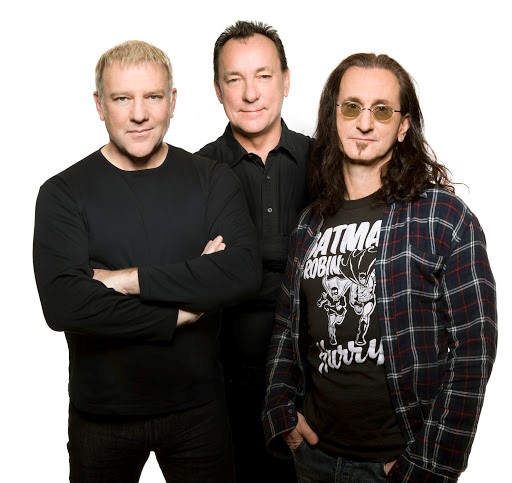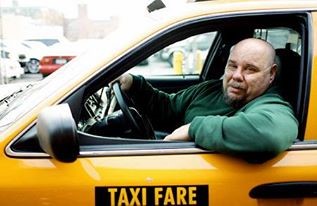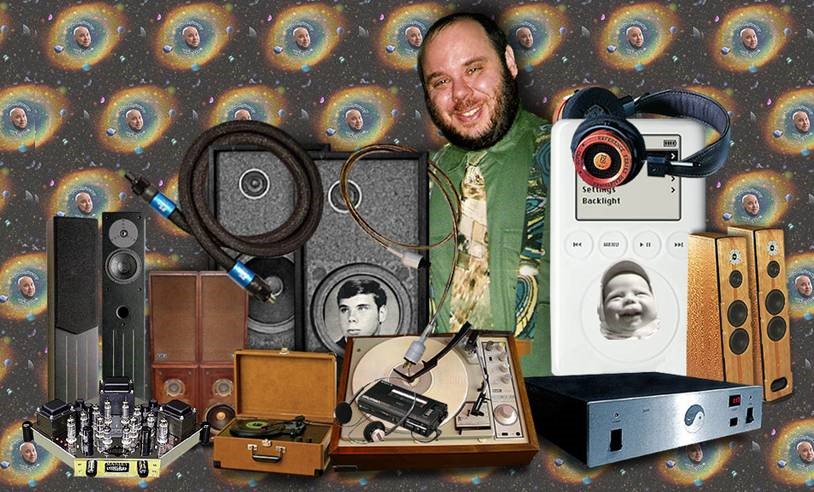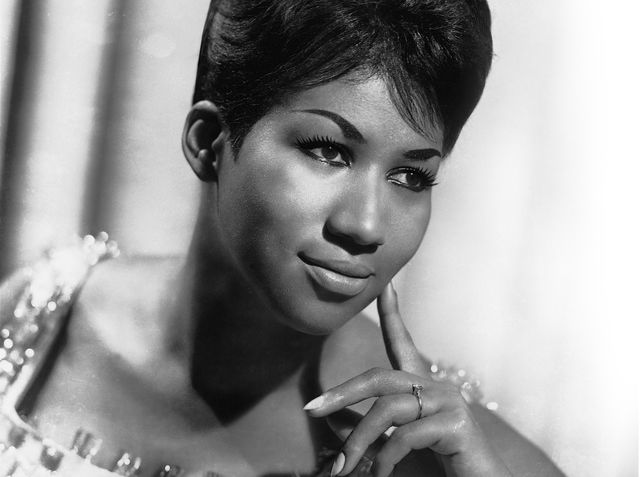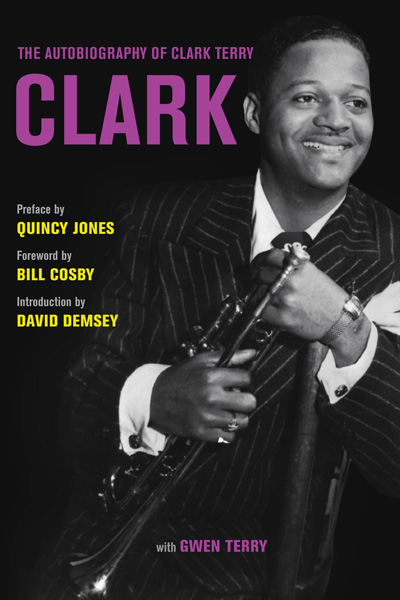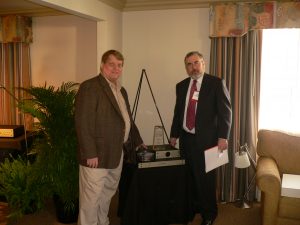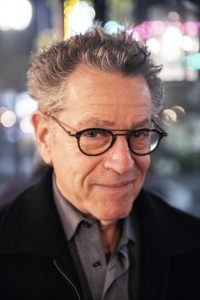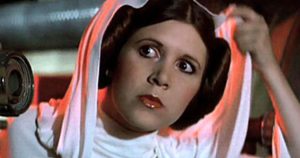Then, when Cream burnt out, Ginger went on to collaborate with Clapton and Stevie Winwood, late of Traffic, in the short-lived but enormously influential Blind Faith, which like Cream, operated on the cusp of several musical genres. Despite barely being together long enough to do a single tour, Blind Faith left behind several memorable tracks which have endured the passage of time.
And while people often point to Baker's extended 5/4 jazz-blues showcase "Do What You Like" with its virtuoso drum turns as a defining moment for Ginger, to me it is the supple understated musicality of the brush work with which he imparts formal airs of dancing delicacy to the elegiac nylon string filigrees, and Steve Winwood's keening falsetto on the plaintive folkish airs of "Can't Find My Way Home."
From the ashes of Blind Faith, Ginger then formed an ambitious big band, Ginger Baker's Air Force, which reflected his passion for jazz, blues, R&B and African music, and allowed him to collaborate with African percussionist Remi Kabaka, while showcasing his beloved mentor Phil Seamen in a two-drummer, multi-saxophone line-up, and subsequently for Ginger to engage in a memorable encounter with another rhythmic inspiration, John Coltrane's innovative drummer, Elvin Jones
This performance was recorded back in 1971 on an Air Force gig, but never released by Ginger's label). Still it cemented a bond of friendship and respect between the two drummers that endured until Elvin passed away in 2004.
Then, in another memorable encounter, Ginger got to bond with another of his inspirations, when he engaged the legendary jazz drummer, Art Blakey, in a telepathic duet at the 1972 Munich Olympics, concluding with a passionate, Afrocentric climax, based on one of Blakey's signature grooves.
"It meant the world to me to be accepted not only as a jazz drummer, but as a peer by my musical fathers and mentors: Phil Seamen, Elvin Jones and Art Blakey, and two decades later by Max Roach and Tony Williams when we collaborated in that Percussion Summit in Verona. I particularly remember playing another festival back in the 1970s, when Philly Joe Jones sought me out after the gig," Ginger recalls, his voice choked with emotions. "Philly told me, ‘When you were soloing, it was like you were telling a story up there.' I was so moved by the generosity of that gesture, because he didn't have to reach out or say a damn thing to me; I mean, who was I—he was Philly Joe Jones, a jazz legend."
What followed in the 1970s was a period of further creative outreach and ambition, which started off with such great promise, before going off the rails. Ginger drove cross the Sahara Desert, from North Africa to Nigeria, where he entered into further creative collaborations with Afrobeat firebrand Fela Ransome-Kuti and his drummer Tony Allen, entertaining his twin passions for African music and polo—culminating in the drummer making a major financial investment in a world-class recording studio in the capitol city of Lagos.
Long story short? Ginger ran askance of power brokers from a major international music corporation—who viewing his studio as a direct challenge to their control of the local music scene, set out to destroy him. Meanwhile, things had become very tense, very tense indeed between Fela and those political powers with whom he was feuding, and as things played out, Ginger was forced to beat a hasty exit out of town. Why? Don't ask.
By decade's end, having lost a small fortune in Lagos, Ginger entertained extended stints with the Baker-Gurvitz Army (which was not without its moments) and a much shorter (frankly embarrassing) stint with the band Hawkwind, in a bid to replenish his resources, but as things played out, a looming encounter with the British tax man, and his desire to put his drug dependency in the rear view mirror once and for all, led the drummer to relocate to a primitive stone house in the Italian province of Tuscany, where he tended an olive orchard and played the odd gig, such as one which brought him to New York in 1984, which is when I first met him.
By the mid-1980s, the innovative bassist-producer Bill Laswell (who had made such an impact on popular culture with his trend setting production of Herbie Hancock's hit "Rockit") sought out Ginger in Tuscany, very much with a musical vision of how to frame Ginger's drumming in a series of creative encounters. There was a very varied and musical Public Image Limited recording session with ex-Sex Pistols front man Johnny Lydon, in which Ginger was memorably paired with guitar shredder extraordinaire Steve Vai on the recital's Hindustani-flavored concluding track, "Ease."
Finding himself with a surplus of good isolated drum tracks, Laswell went on to fashion a series of engaging world music arrangements around Baker's chanting melodic tracks with such stellar musicians as Shakti-violinist L. Shankar, Funkadelic keyboard icon Bernie Worrell and bass virtuoso Jonas Hellborg on a pair of well-received instrumental albums, Horses And Trees and Middle Passage, while Ginger went on to form a creative collaborative bond with Hellborg on the free form trio improvisations of 1990's Unseen Rain…cementing a creative partnership and friendship that endured until Ginger's passing.
By this time, Ginger, in a still-born pursuit of acting opportunities, had relocated to the horse country north of Los Angeles, collaborating on an excellent set of songs and instrumental jams with the trio Masters of Reality on a very underappreciated pop masterpiece—Sunrise on the Suffer Bus. Sadly, after a couple tours, that band proved a little too hip for the room, least ways to a bewildered, indifferent record company. Still they left behind a number of memorable tracks, such as the hypnotic "Rabbit One" and one of Ginger's more endearing poetic recitatives in the honored folkloric tradition of "Pressed Rat And Warthog" ("….selling atonal apples and amplified heat"), as the drummer attempts to school us clueless Yanks as to the proper method of brewing tea.
Then, around 1990, word of a one-off gig with Ornette Coleman's renowned bassist Charlie Haden and blues guitarist Shuggie Otis, triggered my notion of pursuing a production budget for Ginger to finally have the opportunity make a recording of the kind of modern jazz instrumentals which had inspired him to become a musician in the first place—a mere thirty-five years after he began his professional career.
That gig with Shuggie, the son of Blues/R&B legend Johnny Otis, and a prodigious guitarist ever since he began appearing on his father's albums as an adolescent, should have been something quite eventful for Ginger and Charlie Haden. But according to the bassist, when he showed up at the HMV Store on 86th Street and Lexington Avenue in NYC (where I was manager of the jazz department) to promote one of his recent collaborative projects with Portuguese guitarist Carlos Paredes, Otis' behavior on their trio gig was, as per Charlie, shall we say…erratic? Apparently he was running on and off the stage to periodically recharge his batteries, as it were, and at one point in the show Shuggie's girlfriend followed him back on stage in continuation of an escalating confrontation from backstage, wherein she slapped him in the face, and was pursued offstage by the guitarist, as the elder musicians (whose jerseys were retired and hanging in the rafters for the All-Pharmaceutical Team) looked on, clucking their tongues in dismay and going tsk-tsk-tsk.




